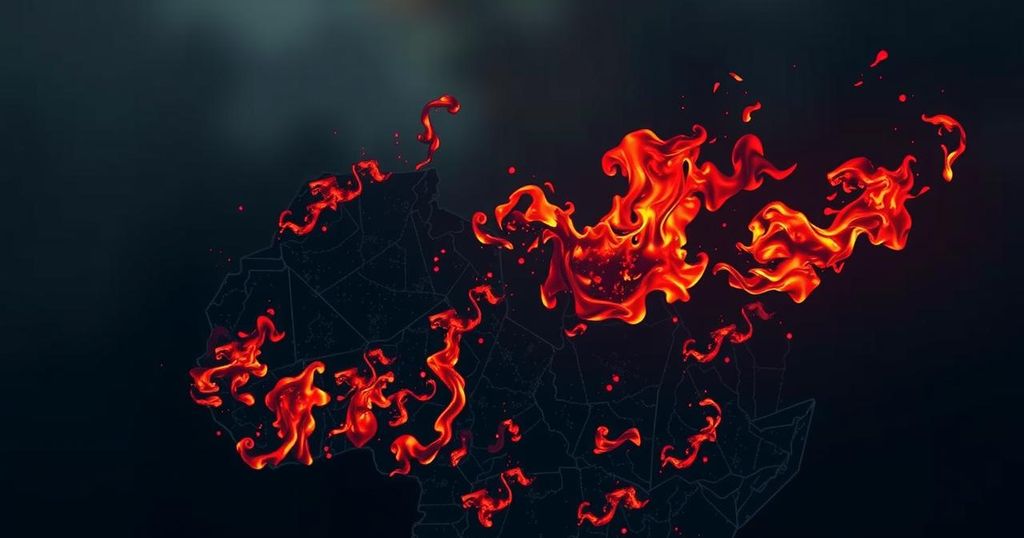SADC leaders will address the unrest in Mozambique following protests against the election of Daniel Chapo. Demonstrations, led by opposition leader Venancio Mondlane, have resulted in violent clashes and significant economic repercussions, prompting calls for regional intervention and mediation by former heads of state.
The Southern African Development Community (SADC) leaders are poised to convene at an upcoming summit to deliberate on the violence and unrest in Mozambique, following the contentious election of Daniel Chapo, who secured over 70% of the votes for the ruling Frelimo party. The opposition leader, Venancio Mondlane of the PODEMOS party, has called for widespread protests against the election results, prompting a severe police crackdown on demonstrators supportive of Mondlane, leading to numerous injuries and fatalities. Recent activities by Mondlane’s supporters have escalated tensions, including the burning of a border post at the Lebombo border with South Africa, which was subsequently intermittently closed. Analyst Willem Els reported that Mondlane has fled to a neighboring country due to threats against his life. As the unrest continues, trucks transporting essential goods across this corridor, vital for the regional economy, have faced blockages, causing significant financial losses. Michael Masiapato, the South African commissioner of the border management authority, noted that although operations have resumed, the situation remains precarious, primarily involving returning citizens from both Mozambique and South Africa. Moreover, cross-border analyst Kage Barnette emphasized the economic impact of the unrest, stating that the instability is costing millions of dollars to the region’s economy. He reported heightened anxiety amongst truck drivers concerning potential confrontations with protesters. Amidst the crisis, SADC leaders, facing criticism for their delayed response, are expected to meet in Harare for five days to seek potential resolutions. It is anticipated that they may deploy a panel of elders, consisting of former heads of state, to intervene between the Mozambican government, opposition, and other concerned parties, with the aim of restoring peace and stability in the region.
The current unrest in Mozambique stems from a mix of political tensions and public discontent following the recent elections, which many in the opposition view as illegitimate. The ruling Frelimo party’s decision to declare Daniel Chapo as president has sparked protests, culminating in violent confrontations between law enforcement and protesters. The resulting turmoil has not only caused civilian casualties but has also significantly disrupted regional economic activities, particularly affecting trade routes essential for transporting goods between South Africa and Mozambique.
In summary, the ongoing unrest in Mozambique has raised serious concerns for regional stability and economic viability. The upcoming SADC summit will be critical in determining the path forward as leaders seek to mediate between conflicting parties and establish a framework for dialogue and peace. The consequences of the unrest on both human lives and regional trade underscore the urgency of effective intervention to restore calm and address the underlying issues driving the protests.
Original Source: www.voanews.com






